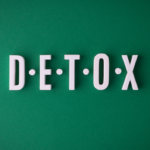Everything You Need To Know About a Video Game Detox

When it comes to treating video game addiction there are numerous methods and techniques proven to help break the cycle of addiction. Unfortunately, a lot of these techniques aren’t widely discussed for the public to implement in their own video game addiction recovery. Hence why we are going to explain everything from what a detox is, to how to get the most out of your detox. If you’ve been struggling with your excessive gaming habits then keep on reading.
Content
What is a Video Game Detox?
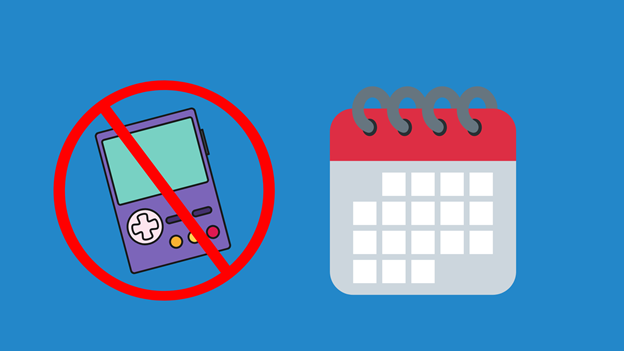
A detox usually refers to the removal of toxic chemicals from the body. In this instance, we aren’t physically removing bad chemicals from our body but we are cutting out something toxic to us, gaming. In other words, a video game addiction detox is an extended break from video games and any gaming related content. During the detox period, addicted individuals are not allowed to play the game that they are addicted to, as well as any other video games that they might want to substitute it with.
Most detoxes recommend 90-days away from gaming and we’ll get onto the science of this in a moment. But it’s important for the time being, to understand that the purpose of a video game detox is not to see how long an individual can spend away from gaming. Rather the detox allows for the effects of excessive gaming on the brain to reverse. This is the distinction between taking a detox and telling an individual to go cold turkey forever.
Attempting to quit gaming outright without the correct knowledge and techniques more often than not results in relapse. Whereas following guidance or a self-help program on detox produces more sustainable results with better long term benefits
How Does A Video Game Detox Work?
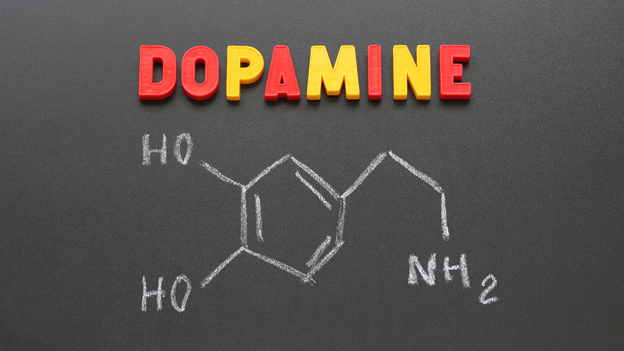
The science behind a gaming detox starts with the effects that a video game addiction has on our brain. When we play video games it has a tendency to be highly stimulating for our brains. We are bombarded with challenges, high-intensity situations, long term goals and rewards all in such a short space of time when we play video games. The main result of this is the release of dopamine in the brain. Without going too in-depth, dopamine is a neurotransmitter responsible for many roles in the body such as memory, mood, attention and motivation and is the main reason why we feel so good and accomplished when we play video games.
Gaming is unique in the sense that no other single activity is this good at providing such stimulation, which is essentially what becomes so harmful to the video game addict. Playing video games makes us feel good and hence we play more. Eventually, through hours and hours of excessive gaming, the receptors in our brain for dopamine start to become desensitised to it. This means that in order to feel the same level of satisfaction we need more dopamine, the best way the body knows how to achieve this is through more video games hence gaming addicts require more video games for longer periods of time.
As a result of this dopamine imbalance, gaming addicts start to experience withdrawal symptoms across various different areas, especially those concerning the previously mentioned memory, mood, attention and motivation. It is not uncommon for video game addicts to notice addiction symptoms like:
- Poor performance at work/school due to their cognitive state
- Low energy and restlessness
- Loss of interest and lack of motivation for activities outside of gaming
- Numbed pleasure response
- Increased affinity towards gaming (Obsessive thinking about gaming and increased satisfaction when playing)
So how does a video game detox combat this? Our bodies are amazing at recovering and repairing themselves. It is entirely possible for the chemical imbalances gaming has caused to revert back to normal if we give it time. This is where a gaming detox comes in. Research has shown that 90-days away from the gaming causing this stimulation is the best timeframe to allow for recovery.
When we give our brains a break from the excessive production of dopamine we can allow receptors to regain sensitivity and baseline dopamine levels to restore back to normal.
What Are The Benefits of A Gaming Detox?
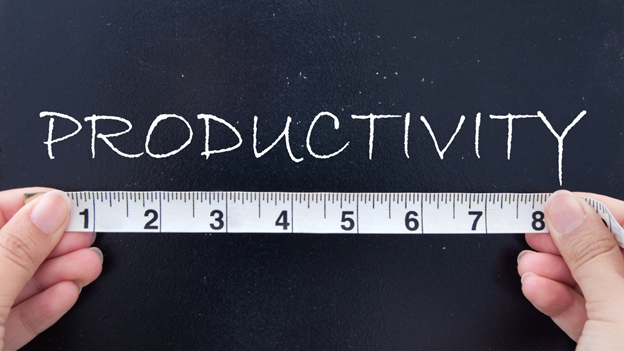
The World Health Organisation as well as other healthcare professionals diagnose video game addiction based on these criteria: significant impairment of social relationships, educational, occupational and other important areas of functioning over a 12 month period due to excessive gaming. These criteria are included in diagnostic manuals to help identify when someone is displaying symptoms of video game addiction.
The relevance of this is those who complete a 90-day detox from video games experience improvements across many areas of their life including energy, mood, relationships, concentration and much more. Thus showing an overall decrease in their addictive symptoms. We can likely attribute this to dopamine activity returning to normal hence being able to carry out all of its many important roles but there are certainly other contributing factors.
Another benefit of taking a detox from video games is allowing the addict to gain some perspective on their life. Often those who are addicted to video games forget what life was like before gaming. Before gaming occupied such a massive portion of their life there were definitely other pleasures that they enjoyed and spent their time doing. Sometimes taking an extended break from gaming gives people a chance to reconnect with old hobbies, friends and interests that gaming was holding them back from.
In many cases, those who complete a video game detox are hesitant to commence gaming again in moderation for fear of losing control and ruining the progress they have made without it. This is totally normal and expected after a detox. Even things that are good for us can have negative effects if it’s not done in moderation. Hence we recommend setting strict rules around gaming if you wish to reintroduce it into your life.
This brings us to our next benefit of a gaming detox, regaining our concept of time. Due to the deep state of immersion that gamers experience when playing it is very common for an addict to have a poor concept of time when playing. Hours passing like minutes until they finally realise that it’s 4 am. Some individuals suffering from video game addiction find themselves missing meals simply due to their unawareness of the world around them when gaming.
However, when we partake in a gaming detox we learn time management techniques that give us a better structure and appreciation for the time in the day as opposed to it all feeling like a blur after a gaming binge. One thing we always recommend is creating a schedule but we’ll come onto these tips and tricks later on.
One thing we find after our members complete a gaming detox is an appreciation for the little things in life, also known as increased gratitude. Increasing gratitude is effective in improving the lives of people who suffer from addiction and other mental health conditions such as depression.
So, if you want to know what to expect from a video game detox then keep on reading.
Withdrawal Symptoms

When an individual suffering from video game addiction begins a detox they will inevitably feel withdrawal symptoms. These symptoms are expressed as:
- Frequent urges to play video games
- Mood swings and irritability
- Feelings of anxiety or depression
- Lethargy and low energy
- Poor concentration and headaches
Not everyone will experience the same symptoms nor will they be of the same severity. However, it’s still important to be aware of what to expect from a video game detox. You should find comfort in knowing that these symptoms are only temporary. Eventually, you will start to notice that cravings are less frequent and have less pull over you. You are more optimistic about your journey to recovery and utilise your time better!
How To Effectively Detox From Video Games
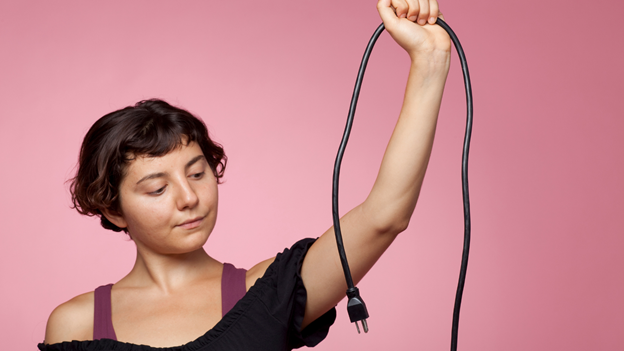
Starting a video game detox in essence is as simple as stopping but it’s what we do when we stop that will determine how committed we are to our time away from gaming. A common problem gamers run into when attempting to quit and killing all their excess time with mindless browsing of the internet, watching videos and other leisure activities. Trying to kill all of the spare time you have after giving up gaming is not sustainable and simply no way to live. Ultimately this leads to boredom and frustration which often results in relapse and playing video games.
The best solution is to make a shift from killing our time to investing it into more productive outlets. Hence we suggest that those starting a detox find multiple alternative activities to gaming. Gaming is a unique activity that provides stimulation in many different areas. People play video games for measurable growth and feelings of accomplishment, some play for the social experience of gaming with friends and others play to relax and unwind from a stressful day.
No other single activity will satisfy each of these different areas which is why it is important to have an activity for each of these different motivations. We recommend:
- A mentally engaging activity like learning an instrument or a new language to experience measurable growth
- A social activity like martial arts or team sports
- A low energy like reading, drawing or cooking
These are just a few examples but you’re more than welcome to come up with something more in line with your interests. The important thing is to find something that satisfies each of these different areas. We couldn’t opt to read all day nor is it sustainable to go to the gym all day. So try to be realistic with your choices.
Off the back of this, we always recommend that those who start a detox organise their day into a schedule. Addiction in general takes a toll on people’s time management skills so it’s important to get some more structure back into the day. The schedule doesn’t have to be a strict military regime but having an idea of the different tasks you’d like to complete in the day is a good start.
Understandably your concentration will be poor when getting back into the swing of things so we always recommend the use of the time management technique called the Pomodoro Technique. It is a proven method to boost productivity when carrying out tasks such as working or studying and is extremely useful as part of a video game addiction treatment.
The technique goes as follows:
- Start by working for 25 minutes followed by a 5-minute break
- During the 5 minute break refrain from gaming or doing any gaming related activities like watching videos or live streams. Try to carry out an activity totally unrelated to gaming or the work you’re doing.
- The break activity is totally up to you. It could be getting a snack, going for a walk or completing chores.
- After this break, we head back to work for another 25 minutes followed by another 5-minute break
- We complete these cycles four times or until we are done with our work
- As we start to boost our productivity we can increase the amount of time that we are working at a rate that we are comfortable with. Something like 30 minutes instead of 25.
- The goal of the exercise is to increase our work time without increasing the break. If we begin to increase our break time technique starts to fall apart and leaves room for procrastination etc
In summary, this exercise is great to help those recovering from video game addiction to be more productive but it is also used by people who want to get more done in the day. Why not give it a try?
Finally, we need to make gaming harder to access in order to break our habits. After playing video games repetitively it starts to become ingrained in us as a habit. A problem with habits is that we are not very consciously aware of the behaviour when we do it. Take our walk to work or school in the morning as an example. After completing this for months to years we stop thinking about the directions to make our way there. However, if there were roadworks or construction taking place that blocked your usual route, you would have to switch back on to make conscious decisions and navigate your way there.
Similarly, we need to disrupt our routine of playing video games so that we can consciously think and make better decisions to stay committed to our detox. We call this increasing the barrier to entry. Simply put, making video games harder to access.
Here are a few tips we can use to do this:
- Unplug your gaming consoles or PC after use
- Place gaming devices somewhere that’s hard to reach like in a garage or attic
- Put locks on gaming apps if you play on mobile or hide your desktop shortcuts
- If you’re struggling with self-imposed limits then try giving your password to a close friend or family member. Alternatively, you can let them hang onto your console for the duration of your detox
- Finally, try uninstalling the game altogether if you feel confident enough to do so
Some of these tips might sound obvious or a bit silly but the purpose of these are to break the habit loop gaming. These precautions will add an extra unusual step to our normal routine which will buy us some extra time to consciously take control and make better decisions and commit to our detox.
Common Questions About Gaming Detoxes
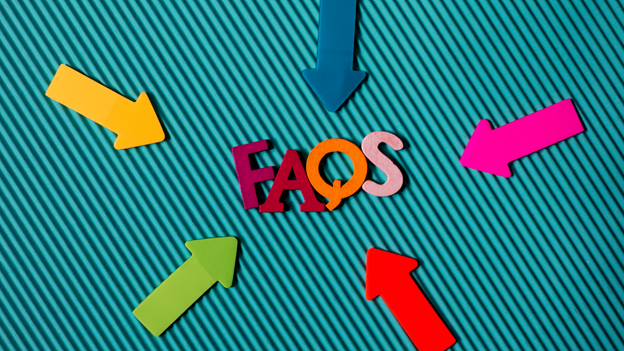
Can I Watch YouTube Videos and Livestreams? – While these do not directly break your detox we recommend that you avoid content like this which can trigger your urges to play video games. It serves as an unnecessary temptation that we can easily avoid.
Can I Play Video Games With My Friends? – This often serves as an obstacle as many people play video games with their friends as a social time. Our advice is to use this time to enjoy other activities with your friends that don’t involve gaming. It’s important to make them aware of your decision to try and cut down on gaming so that you have a network of people around you for support. Welcome those willing to help you and be firm with those who do not agree with your boundaries.
Am I Allowed To Play Other Games? – A video game detox means no video games at all especially the ones that you are addicted to. There are exceptions for educational games for school, word and number puzzles and board games. Anything that falls outside of this and is gaming for recreational purposes should be avoided.
How Can I Prevent Relapse? – Most detoxes are accompanied by a video game addiction self-help program that will provide knowledge and techniques to reduce the effects of our negative and addictive thoughts. Treatments such as Cognitive Behavioural Therapy, Mindfulness and Acceptance and Commitment Therapy can be delivered in the form of guided audio lessons which equip you with the tools to take on your addiction similar to attending therapy sessions.
What Can I Expect After 90 days? – During the detox you will feel your addictive symptoms subside but many people often question what to do after they have completed their detox. This decision lies entirely up to you. Many people wish to continue on without video games, proud of the progress they have made in other areas of their life. Likewise, some individuals like to reintroduce gaming back into their lives to play in moderation.
We hope that you are more aware of what a video game detox is and feel confident to attempt it as a viable solution to your addiction. If you’d like to know more about video game addiction or need help cutting down, The Mindful Gamer is always here to help.



